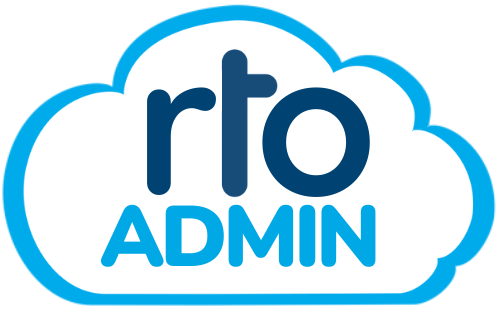Have you ever considered the diverse benefits of Becoming a Registered Training Organisation (RTO)? Maybe you’re curious about how such a move could expand your opportunities to deliver both nationally and internationally accredited courses. If you’ve been eyeing this path, it’s likely because you recognize the importance of contributing to education and the workforce. As we embark on this discussion, let’s unpack the various advantages and opportunities that come with RTO registration, always keeping in mind the essential requirements that ensure both compliance and success.
What is an RTO and Why Consider Registration?
When you hear ‘Registered Training Organisation,’ what comes to mind? For many, RTOs are seen as pillars of education that ensure the workforce is well-equipped with essential skills and knowledge. By Becoming an RTO, you gain the ability to offer accredited courses recognized across national and international landscapes, setting your organization apart as a leader in education.
The Impact of RTOs on the Workforce
RTOs play a pivotal role in shaping the workforce by offering training that aligns with industry needs. Your organization can contribute to this by tailoring courses that enhance skills and improve employability. The ripple effect of well-trained individuals extends beyond personal growth, benefitting entire industries and economies.
Benefits of RTO Registration
What specific advantages does RTO registration bring? From access to funding to global networking, registering as an RTO opens doors that can significantly enhance your offerings and reach.
Access to Government Funding
One of the primary incentives for becoming an RTO is accessing government funding. This financial support can bolster your resources, allowing you to enhance course offerings, invest in new technologies, or expand your facilities. This grants you the capacity to provide quality education without the overwhelming pressure of self-funding.
| Funding Type | Description |
|---|---|
| Training Grants | Specific grants aimed at developing certain skills or sectors within the workforce. |
| Student Support | Funds that directly support student participation and accessibility. |
| Infrastructure Fund | Capital to assist with the creation or enhancement of training facilities and resources. |
Expanding International Reach
By reaching beyond national borders, your RTO can attract international students, broaden your impact, and create a globally recognized institution. Registering as a Commonwealth Register of Institutions and Courses for Overseas Students (CRICOS) provider is a crucial step in this process, aligning you with worldwide educational standards.
Comprehensive Course Offerings and Industry Engagement
Being an RTO allows for a varied coursework approach, meeting diverse needs. Engaging directly with industries ensures your courses remain relevant and appealing, potentially leading to partnerships or co-development arrangements. The more comprehensive your offerings, the wider array of students and industries you’ll attract.
Online Delivery and Digital Integration
In today’s digital age, offering online courses is indispensable. RTO registration often includes integration with Learning Management Systems (LMS), providing a robust framework for delivering content, tracking progress, and managing student interactions virtually. This not only extends your reach but aligns you with global shifts towards digital learning.
Financial Considerations: Planning for RTO Establishment
Considering the financial implications of establishing an RTO is crucial. Costs can range significantly based on size, scope, and the specific courses you plan to offer. Careful financial planning ensures sustainability and enables you to make informed decisions that align with your long-term goals.
Assessing Financial Requirements
Creating a financial plan that accommodates the establishment and ongoing operation of your RTO involves a detailed assessment of various cost factors. This can include staffing, infrastructure, technology, and marketing needs.
Budget Planning and Financial Management
An effective budget is foundational to your RTO’s success. You must allocate funds wisely and ensure there is sufficient capital to sustain operations, fund new initiatives, and absorb potential fluctuations in enrolment numbers.
Key Factors for Successful RTO Implementation
Success in the RTO landscape requires more than just registration; it demands strategic actions aligned with industry demands and institutional strengths.
Industry Relevance and Curriculum Development
Selecting Training Packages that reflect real-world needs is essential. You must continually assess market trends and work with industry experts to ensure your courses remain relevant and appealing to prospective students.
Attracting International Students through CRICOS
Becoming registered with CRICOS not only enhances your credibility but also opens the door to diverse cultural exchanges and broader learning experiences. This step requires your courses to meet international standards, thereby elevating your overall educational quality.
Importance of a Robust Student Management System (SMS)
A compliant Student Management System (SMS) helps manage enrolments, financials, and compliance with AVETMISS standards. This system should ideally integrate with your LMS to offer seamless online learning experiences, ensuring efficient management and student satisfaction.
Compliance and Quality Assurance: Regulatory Environment
Navigating the compliance landscape is imperative for maintaining RTO status. Understanding the role of the Australian Skills Quality Authority (ASQA) and adhering to their standards is fundamental.
The Role of ASQA in RTO Regulation
ASQA regulates RTO standards, ensuring quality education is delivered. It achieves this through regular audits and assessments, maintaining high educational standards across the board. Familiarizing yourself with ASQA’s processes helps you remain prepared and compliant.
Registration Processes and Compliance Requirements
Registration with ASQA requires a thorough submission of documentation, detailing your educational offerings and organizational structure. Due attention must be paid to compliance with legislative requirements because changes post-submission are restricted. This underscores the need for careful planning and thorough preparation.
Planning Long-term RTO Success
How can you ensure the longevity and success of your RTO? Strategic planning and constant engagement with industry trends can make all the difference.
Strategic Planning and Continuous Improvement
Long-term success depends on your ability to adapt and evolve with educational and industry trends. Continuously reviewing and updating your courses and strategies ensures you remain competitive and relevant.
Networking and Building Industry Partnerships
Establishing strong networks and partnerships with industry organizations can facilitate smoother course development and provide valuable insights into evolving educational needs. These relationships can also lead to collaboration, further strengthening your position in the sector.
Emphasizing Student Satisfaction and Outcomes
Ensuring student satisfaction should always be a priority. A reputation for producing satisfied students who achieve positive outcomes will naturally attract more prospects. Implementing feedback systems and continuously improving the student experience are important steps in this direction.
Conclusion
Is becoming a Registered Training Organisation the right move for you? With its myriad benefits, from government funding to expansive global reach, RTO registration offers a world of possibilities for enhancing educational impact and financial growth. By carefully considering industry needs, maintaining compliance, and planning for sustainability, you are well on your way to establishing a successful RTO that contributes significantly to both education and the workforce. Remember, thorough preparation and consistent quality assurance are keys to making the most of the opportunities awaiting you in the RTO landscape.




